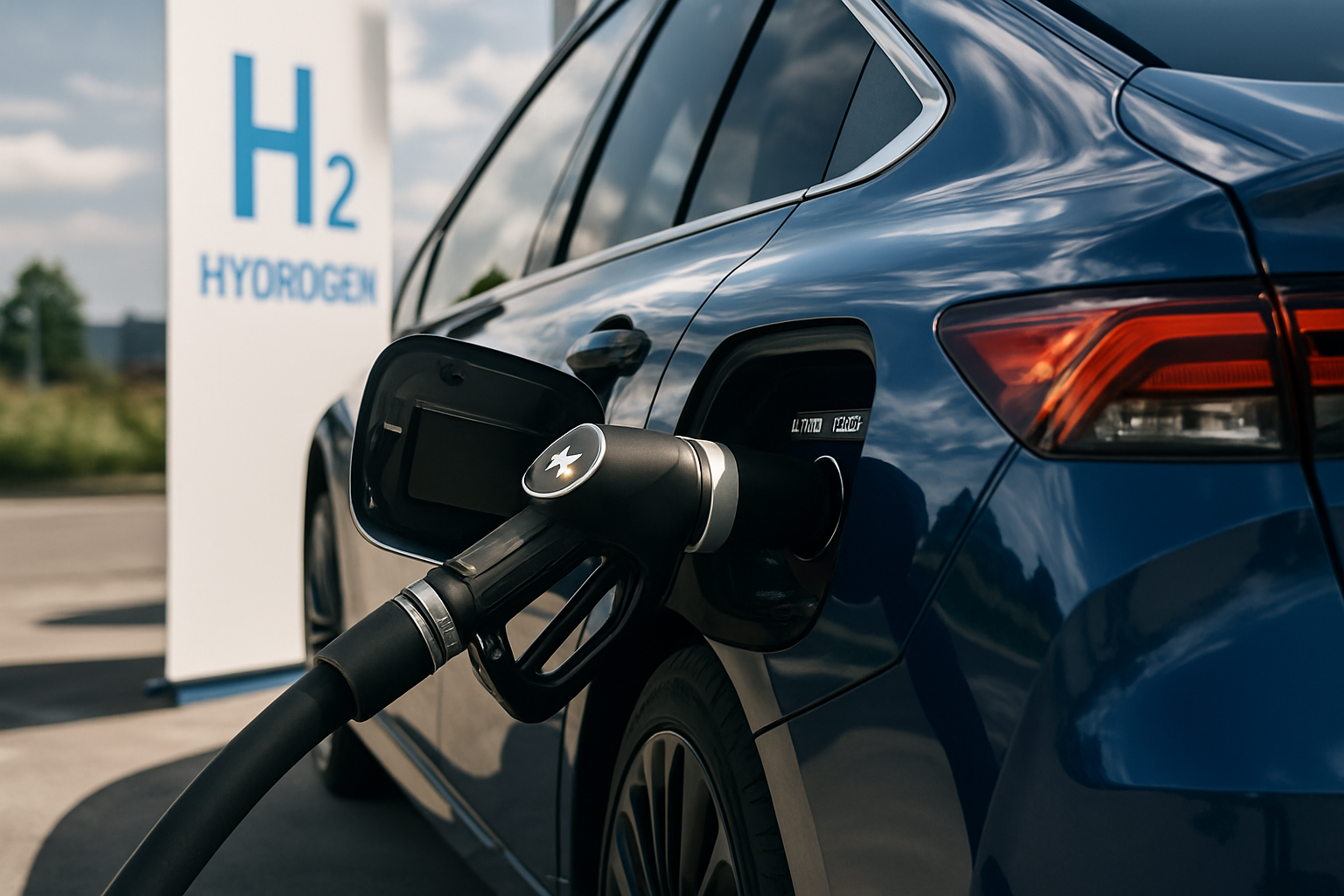Hydrogen Fuel Cell Vehicles: The Future of Clean Mobility
In the ever-evolving landscape of automotive technology, hydrogen fuel cell vehicles (FCVs) are emerging as a promising solution to the challenges of sustainable transportation. This cutting-edge technology harnesses the power of hydrogen to produce electricity, offering a clean and efficient alternative to traditional combustion engines. As the world grapples with the urgent need to reduce carbon emissions, FCVs are poised to play a crucial role in shaping the future of mobility.

A Brief History of Hydrogen in Automotive Applications
The concept of using hydrogen as a fuel source for vehicles is not new. In fact, the first hydrogen-powered internal combustion engine was developed as far back as 1807 by François Isaac de Rivaz. However, it wasn’t until the late 20th century that significant strides were made in fuel cell technology for automotive use. The 1960s saw NASA utilizing fuel cells in space missions, which sparked renewed interest in their potential for terrestrial applications.
The Advantages of Hydrogen Fuel Cell Vehicles
FCVs offer several compelling advantages over traditional gasoline-powered vehicles and even battery electric vehicles (BEVs). One of the most significant benefits is their quick refueling time, typically taking only a few minutes to fill up, comparable to conventional gas stations. This addresses one of the main drawbacks of BEVs, which can require hours for a full charge. Additionally, FCVs boast impressive range capabilities, often exceeding 300 miles on a single tank of hydrogen.
Overcoming Infrastructure Challenges
Despite their potential, the widespread adoption of FCVs faces a significant hurdle: the lack of hydrogen refueling infrastructure. Unlike the ubiquitous gasoline stations or the growing network of electric charging points, hydrogen fueling stations remain scarce in most regions. However, several countries, including Japan, Germany, and South Korea, are making substantial investments in hydrogen infrastructure. As these networks expand, it’s likely to catalyze greater interest and adoption of FCVs.
Environmental Impact and Sustainability
One of the most compelling arguments for hydrogen fuel cell technology is its potential for near-zero emissions. When powered by green hydrogen—produced using renewable energy sources—FCVs can offer a truly sustainable transportation solution. However, it’s important to note that the current methods of hydrogen production often rely on fossil fuels, which somewhat offsets the environmental benefits. As green hydrogen production scales up, the overall carbon footprint of FCVs is expected to decrease significantly.
Technological Advancements and Cost Reduction
Recent years have seen remarkable progress in fuel cell technology, leading to increased efficiency and reduced costs. Innovations in catalyst materials, such as replacing platinum with more abundant elements, have helped drive down production expenses. Moreover, advancements in hydrogen storage systems have improved both safety and capacity. As research and development continue, we can expect further improvements that will make FCVs more accessible to the mass market.
Comparing FCVs to Other Alternative Fuel Vehicles
While battery electric vehicles have gained significant traction in recent years, FCVs offer unique advantages in certain applications. For heavy-duty vehicles, long-haul transport, and scenarios requiring quick refueling, hydrogen fuel cells present a compelling alternative. The complementary nature of these technologies suggests that the future of clean mobility may involve a diverse ecosystem of vehicle types, each suited to specific use cases.
The Role of Policy and Government Support
Government policies play a crucial role in shaping the future of automotive technologies. Many countries are implementing incentives and regulations to promote the adoption of zero-emission vehicles, including FCVs. Japan, for instance, has set ambitious targets for hydrogen adoption across various sectors, including transportation. As more nations recognize the potential of hydrogen in achieving their climate goals, we can expect increased support for FCV development and infrastructure.
Industry Collaboration and Partnerships
The complex nature of hydrogen fuel cell technology necessitates collaboration across various industries. Automakers are forming strategic partnerships with energy companies, technology firms, and government agencies to accelerate development and overcome challenges. These collaborations are essential for addressing issues such as hydrogen production, distribution, and standardization of fueling protocols.
Future Prospects and Market Outlook
As we look to the future, the prospects for hydrogen fuel cell vehicles appear increasingly promising. While current market penetration remains limited, many industry analysts predict significant growth in the coming decades. The versatility of hydrogen as an energy carrier, coupled with ongoing technological advancements, positions FCVs as a key player in the transition to sustainable mobility. As costs continue to decrease and infrastructure expands, we can expect to see more hydrogen-powered vehicles on our roads, contributing to a cleaner, more sustainable transportation landscape.






